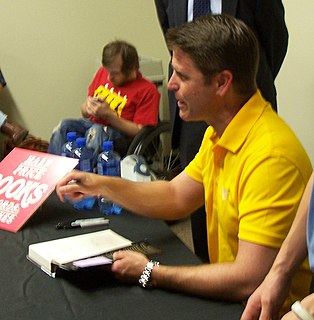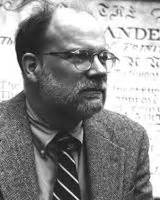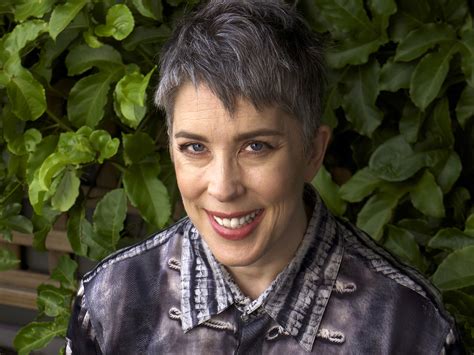A Quote by Murray Rothbard
The most famous and one of the most thoroughgoing opponents of bank credit was Thomas Jefferson. Jefferson reacted to the panic of 1819 as a confirmation of his pessimistic views on banks.
Related Quotes
But the fascinating and unbelievable-but-true thing about Dr. Jefferson Jeffersonis that he was not a doctor of any kind. He was just an orange juice salesman named Jefferson Jefferson. When he became rich and powerful, he went to court, made "Jefferson" his middle name, and then changed his first name to "Dr." Capital D. Lowercase r. Period.
I'm a product of a Notre Dame education; those professors taught me a lot about how you separate the city of God from the state. I'm also a reverent follower of the tradition of Thomas Jefferson. My years of public life have simply confirmed the intensity of my belief that what I have learned from Joe Evans and Thomas Jefferson was correct.
Intellectuals love Jefferson and hate markets, and intellectuals write most of the books. Intellectuals often think that they should, for the benefit of mankind, act as fiduciaries for the clods who don't have to be intellectuals, and I suspect that has to do with [why historians love Jefferson and not Hamilton, even though Hamilton's vision of America's commercial future was vastly more accurate than Jefferson's].
The American world had - seemingly, at least - become a Jeffersonian world by the election of 1800, which placed Thomas Jefferson in the presidency. Jefferson had been Hamilton's rival in the new government's early years, and Hamilton has figured in the public memory almost as much for that rivalry as for his positive achievements.
When John Adams - when - James Madison was writing - pretty much writing the Constitution, he got a letter from Thomas Jefferson, who was then-ambassador to France. And Jefferson said - I am paraphrasing - `Do not forget to keep habeas corpus and strengthen it.' That - in - that's the oldest English-speaking right. It goes back to the Magna Carta in 1215.





































